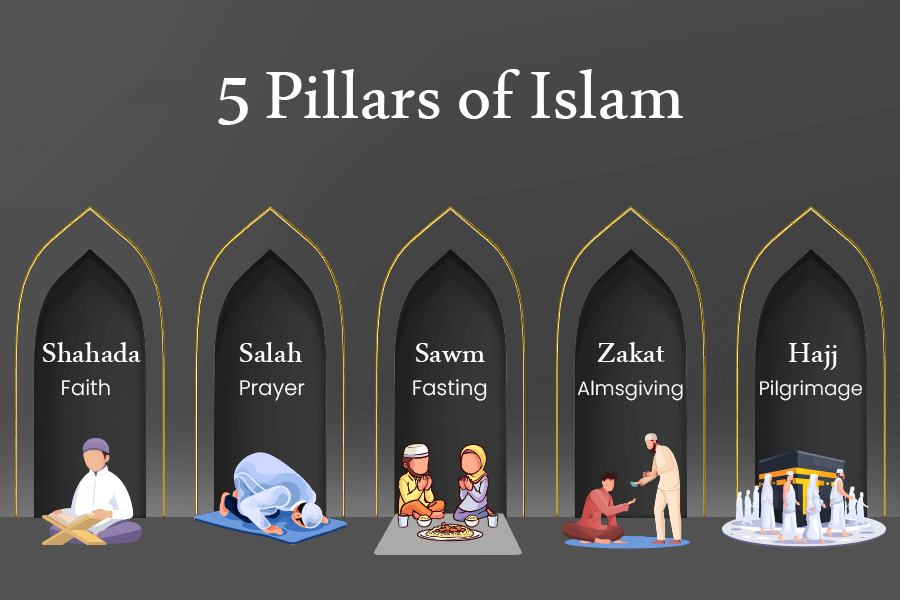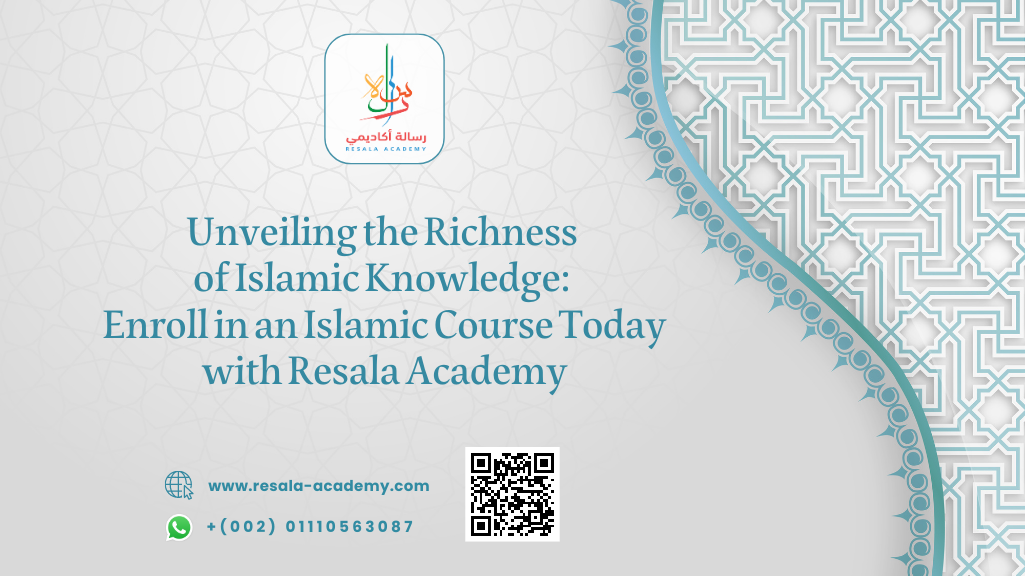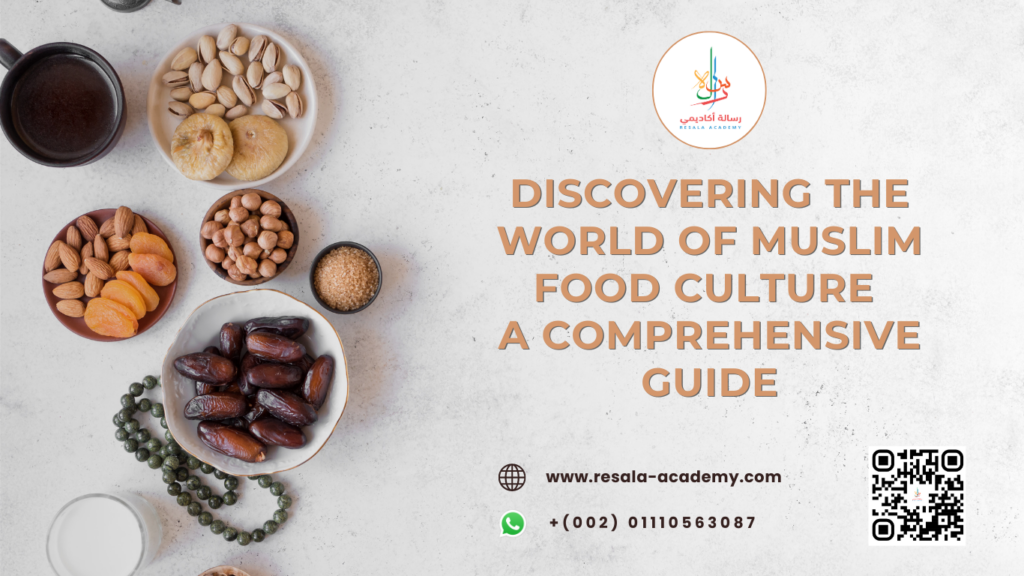Table of Contents
Resala Academy: The Ultimate Guide to The 5 pillars of Islam
Islam is based on five key pillars that guide Muslims in their everyday lives. These pillars are faith, prayer, fasting, charity, and pilgrimage. Each of these pillars plays an important role in Islamic belief and practice.
The first pillar is faith, which requires Muslims to believe in Allah and the teachings of the Quran. This is the foundation upon which all other aspects of Islam are based.
The second pillar is prayer, which Muslims are required to perform five times daily. Prayer helps Muslims to remember Allah and to focus on their spiritual journey.
The third pillar is fasting, which is observed during the holy month of Ramadan. Fasting helps Muslims to appreciate Allah’s blessings and to develop self-control.
The fourth pillar is charity, which requires Muslims to give generously to those in need. Charity helps Muslims to remember the value of helping others and to live out the Islamic principle of social responsibility.
The fifth and final pillar is the pilgrimage, which every able-bodied Muslim is required to perform at least once in their lifetime. Pilgrimage allows Muslims to deepen their faith and to experience Islamic history and culture firsthand.
These five pillars constitute the core of Islam. By following them, Muslims can live fulfilling lives that are pleasing to Allah.
1- Faith
Muslims must have complete faith in Allah, his angels, his books (including the Quran), and his prophets. This means that they should strictly adhere to Islamic teachings and not question or doubt them.
Faith is the first and most important pillar of Islam. Muslims must have complete faith in Allah, his angels, his books (including the Quran), and his prophets. This means that they should strictly adhere to Islamic teachings and not question or doubt them.
Allah is the one true god who created the universe and all that exists within it. He is all-powerful and all-knowing, and he demands complete obedience from his followers. Muslims believe that Allah has revealed himself to humanity through scriptures like the Quran. They also believe in prophets like Muhammad, who were chosen by Allah to guide humanity on their spiritual journey.
Following Islamic teachings is essential for a Muslim’s faith. They must believe in everything that Allah has revealed, without questioning it or doubting it in any way. This faith forms the foundation upon which all other aspects of Islam are based.
Here are some verses about faith in the Holy Quran:
“And who is better in faith than one who submits his whole being to Allah, does good, and follows the way of Abraham, the upright? Allah has chosen Abraham as a friend.” (Quran 4:125)
“Believers, have faith in Allah and His Messenger, and in the Light which He has sent down. Do not scatter your faith; be steadfast in it. Allah is fully aware of what you do.” (Quran 8:24)
“Those who have faith and do righteous deeds are the best of creatures.” (Quran 98:7)
(13:28) “Such are the ones who believe (in the message of the Prophet) and whose hearts find rest in the remembrance of Allah. Surely in Allah’s remembrance do hearts find rest.”
(13:29) “So those who believe (in the message of the Truth) and do good are destined for happiness and a blissful end.”
2- prayer
The word salah (in Arabic: صلاة) is used by Muslims across the globe and refers to the daily prayer. But prayer is also said by Arabic words “dua” and “dhikr” both meaning prayer. The actual meaning of the word in Salah or Salat in Arabic means connection, contact, or communication.
Muslims pray five times a day to stay close to Allah and to focus on their spiritual journey. Prayer is one of the most important aspects of Islam, and it plays a vital role in the lives of Muslims.
Muslims are required to pray five times a day: at dawn, midday, afternoon, sunset, and nightfall. Prayer helps Muslims to stay close to Allah and to focus on their spiritual journey. It is also an opportunity for them to commune with Allah and express their gratitude for his blessings.
Prayer is an important part of Islamic culture as well. It is a time for Muslims to come together and share in their faith. In many ways, prayer is the heart of Islam. It is where Muslims connect with Allah most closely and receive his guidance for their lives.
Here are some verses about prayer from the Holy Quran:
2:3-4 Who believe in the unseen, establish prayer, and spend out of what We have provided for them, And who believe in what has been revealed to you, [O Muhammad], and what was revealed before you, and of the Hereafter they are certain [in faith].
2:43 And establish prayer and give zakah and bow with those who bow [in worship and obedience].
2:45 And seek help through patience and prayer, and indeed, it is difficult except for the humbly submissive [to Allah]
3- fasting
Ramadan is a month of fasting for Muslims all over the world.
Fasting during Ramadan is one of the five pillars of Islam, and it is mandatory for all Muslims who are able to do so. The purpose of fasting is to purify and focus the mind and soul, and to increase one’s piety and devotion to Allah. It is also a time for Muslims to come together and share in their faith.
Fasting during Ramadan begins at dawn and ends at sunset. Muslims are not allowed to eat or drink anything during this time. They are also not allowed to smoke or engage in any sexual activity. Fasting is an act of self-control and discipline, and it teaches Muslims how to be patient and humble. It also helps them to understand what it feels like to be hungry and thirsty.
Ramadan is a special month for Muslims because it is the month in which the Quran was revealed to Muhammad, peace be upon him. It is also a time when Allah blesses his followers with increased guidance and mercy. In addition, fasting during Ramadan has many health benefits, including weight loss, decreased blood pressure, improved insulin sensitivity, and reduced cholesterol levels. Ramadan is a month of fasting for Muslims all over the world. Muslims fast during Ramadan to purify and focus the mind and soul and to increase one’s piety and devotion to Allah. It is also a time for Muslims to come together and share in their faith. In many ways, fasting is the heart of Islam.
The Messenger of Allah (saw) said, “When the month of Ramadan starts, the gates of the heaven are opened and the gates of Hell are closed and the devils are chained.” (Imam Bukhari) …
Narrated Abu Huraira(r.a): The Messenger of Allah (saw) said:”… whoever fasts during Ramadan out of sincere faith and hoping to attain Allah’s rewards, then all his past sins will be forgiven.” (Imam Bukhari).
Here are some verses about Fasting from the Holy Quran:
“The month of Ramadan (is the month) in which the Qur’an has been sent down as guidance for mankind containing clear signs which lead (to the straight road) and distinguishing (the truth from falsehood)..” (Q 2:185)
“Oh you who believe! Fasting is prescribed to you as it was prescribed to those before you, that you many learn piety and righteousness” (Q 2:183)
4- charity
Charity is one of the most important Islamic values, and it is an essential part of life in Islam. The purpose of charity is to help those who are in need, and it is an act of worship that pleases Allah. Charity also has many benefits for Muslims, both in this life and in the afterlife.
Charity is one of the five pillars of Islam, and it is mandatory for all Muslims who are able to do so. The purpose of charity is to help those who are in need, and it is an act of worship that pleases Allah. In addition, charity has many benefits for Muslims, both in this life and in the afterlife. Here are some verses about charity from the Holy Quran:
“The righteous (people) are those who spend their money during times of both ease and hardship, who restrain their anger and pardon people – Allah loves the charitable.” (Q 3:134)
“And give them preference over themselves even though they were needy. And whoever protects himself from his own stinginess – then indeed, he will have a great reward.” (Q 59:9)
Prophet Muhammad (SAW), said: “Do not show lethargy or negligence in giving alms and charity till your last breath.” – (Bukhari and Muslim)
The Prophet, upon him be peace, said: “A crafty one, a miser, and one who keeps reminding people of what he has given, will not enter Paradise.” (Tirmidhi)
Muhammad, upon him be peace, said: “Charity does not in any way decrease the wealth and the servant who forgives, Allah adds to his respect; and the one who shows humility, Allah elevates him in the estimation (of the people).” (Muslim)
Charity is one of the most important Islamic values, and it is an essential part of life in Islam. The purpose of charity is to help those who are in need, and it is an act of worship that pleases Allah. Charity also has many benefits for Muslims, both in this life and in the afterlife. In addition, charity is one of the five pillars of Islam, and it is mandatory for all Muslims who are able to do so.
5- Pilgrimage “Hajj”
The pilgrimage to Mecca, known as the Hajj, is one of the five pillars of Islam. It is a mandatory pilgrimage for all Muslims who are able to do so. The Hajj is an incredibly spiritual experience that benefits Muslims in many ways. …
In addition to being a religious obligation, the Hajj is also a physical and mental challenge that can help Muslims grow stronger mentally and spiritually.
It can also be an opportunity to learn more about the history of Islam and to strengthen ties between Muslims from different countries. It is a time for Muslims to reflect on their faith and become closer to God.
The Hajj is a challenging but rewarding experience that helps bring Muslims closer to Allah, and it is one of the most important pilgrimages in the Muslim world. By performing the Hajj, Muslims can fulfill one of the five pillars of Islam and gain its countless spiritual benefits.
These are only some of the many values taught by Islam that help shape a Muslim’s life. From recognizing God as the only deity worthy of worship and praying five times a day to fasting during Ramadan, charity, and pilgrimage; these values help guide us towards a life of peace and harmony. So, let us remember the teachings of Islam, live by its values, and strive to become better Muslims.
“Hajj is [during] well-known months, so whoever has made Hajj obligatory upon himself therein [by entering the state of ihram], there is [to be for him] no sexual relations and no disobedience and no disputing during Hajj. And whatever good you do – Allah knows it. And take provisions, but indeed, the best provision is fear of Allah. And fear Me, O you of understanding.” (2:197)
“And keep yourself patient (by being) with those who call on their Lord in the morning and the evening seeking His pleasure; and let not your eyes overlook them desiring the adornment of worldly life; and do not obey one whose heart We have made heedless of Our remembrance and who follows his own desires and whose affair is ever (in) excess.” (Q 18:28).
This verse reminds us that we should be patient when dealing with others, even if they are unresponsive or difficult. When surrounded by people who don’t follow Islamic values it is important to remember our own values and strive for excellence in all aspects of life. Allah will reward us if we remain true to the teachings of Islam, even when temptation arises.
In conclusion, Islamic values are a source of guidance and strength for Muslims. From recognizing God as the only deity worthy of worship to charity, fasting during Ramadan, and pilgrimage; these values help shape a Muslim’s life. So let us turn to the Quran often, look within ourselves daily, and live our lives according to Islamic values so that we can be successful in this world and the next.
FAQ
Q: What are the five pillars of Islam?
A: The five pillars of Islam are Shahada (Declaration of Faith), Salah (Prayer), Zakat (Charity), Sawm (Fasting during Ramadan) and Hajj (Pilgrimage to Mecca). These are mandatory religious duties for all Muslims who are able to do them.
Q: What is Salah?
A: Salah, or prayer, is one of the five pillars of Islam. It is a ritual performed five times a day that involves reciting specific verses from the Quran and performing physical prostrations. Prayer helps bring one closer to God, and it has many spiritual benefits too.
Q: What spiritual benefits are there to performing Hajj?
A: The spiritual benefits of performing the Hajj pilgrimage include strengthening one’s faith, becoming closer to Allah, and being part of an international community of believers. It is also a time for reflection on one’s life and a chance to understand and appreciate Islamic history. Performing the Hajj can lead to personal growth and transformation.
Source: https://www.thoughtco.com/the-spiritual-benefits-of-hajj-2004326
Q: How can I live my life according to Islamic values?
A: You can live your life according to Islamic values by striving for excellence in all aspects of life, being patient when dealing with others, and remaining true to the teachings of Islam. It is also important to read and understand the Quran often and be conscious of your own thoughts and actions. Finally, remember that Allah will reward us if we stay true to our values.
Source: https://www.thoughtco.com/living-according-to-islamic-values-2004324
Q: What is the Shahada?
A: The Shahada is the Declaration of Faith in Islam, which states “There is no god but Allah and Muhammad is the messenger of Allah.” It is the first pillar of Islam that Muslims must declare in order to become a Muslim, and it serves as an affirmation of belief in God and His messenger.
Source: https://www.thoughtco.com/declaration-of-faith-shahada-2004323
Q: What is Zakat?
A: Zakat is the Islamic practice of charity and voluntary giving. It is one of the five pillars of Islam and it involves giving a portion of one’s income or wealth to those in need, such as the poor and disabled. By practicing zakat, Muslims are able to show gratitude for the blessings Allah has bestowed upon them.
Q: What is Sawm?
A: Sawm is the Islamic practice of fasting during Ramadan, which is the ninth month in the Islamic calendar. During this time, Muslims abstain from food and drink from sunrise to sunset as a way of reflecting on their faith and honoring Allah’s commands. Fasting during Ramadan can benefit one’s spiritual and physical health.
This is just a glimpse into the Islamic values that are essential to living a life of faith and dedication to Allah. With our commitment and determination, we can strive to live these values every day so that we can be successful in both this world and the next. May Allah provide us with strength and guidance when temptation arises. Ameen.
Conclusion
The five pillars of Islam – Shahada, Salah, Zakat, Sawm and Hajj – form the foundation of Islamic life. These obligations require us to live according to specific values and principles that are essential for living a spiritual life devoted to Allah. By keeping these values in mind and striving to follow them in our daily lives, we can make progress towards achieving success in this world and the next. May Allah guide us all on our paths of righteousness. Ameen.




